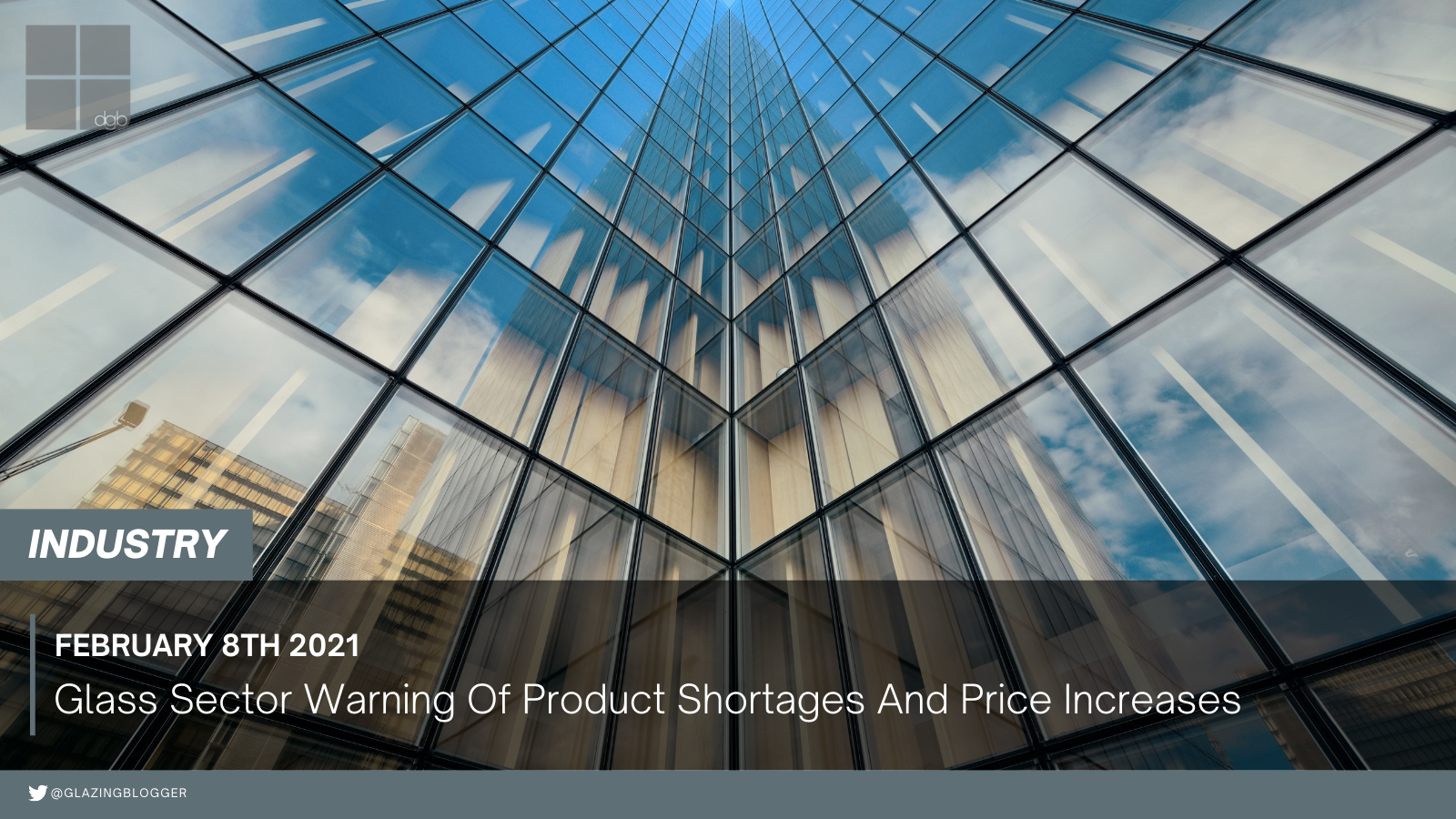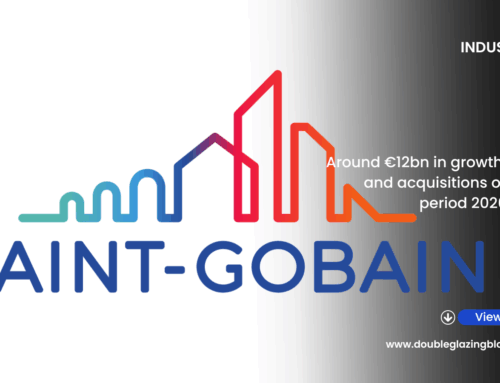Not long after I wrote about the prospect of enduring price increases during 2021 companies from the IGU sector are now coming out with their own warnings. Today we had a press release from Mackenzie Glass approaching this very subject.
Shipping containers
The warning being sounded by their joint MD Mark Herbet is pretty stark and pretty honest. Because global air travel has been battered by the pandemic, with air freight massively reduced, we’re all relying on shipping containers to get our goods from A to B. Except everyone in the world is now reliant on them and there are only so many to go around. As a result, they are going to the highest bidders and best payers, which means prices are skyrocketing and lead times on deliveries are only getting longer.
This is the press release issued and it is worth a few minutes of your time:
Global shortage of shipping containers to compound pressure on glass supply
Glass processors and IGU manufacturers should prepare now for increased prices and lower availability of product caused by the global shortage of shipping containers.
The warning from Mackenzie Glass is made amid reports of price increases of as much as 35% on some products in as little as 24 hours.
This, according to the company’s joint Managing Director, Mark Herbert, is attributable to a massive jump in the price of shipping containers from the Far East, because of a 30% increase in demand and the significant disruption caused by COVID-19 to global shipping.
This has seen the price of a 40-ft container to the UK from China soar from $2,000, to between $8,000 and $10,000 – a price Mark warns will have to be passed on through the supply chain.
“Shipping containers aren’t in the right places at the right times, and that means the slots allocated to them at ports are being missed and the problem becomes worse”, he explained.
“The implications for UK glass supply are massive at a time when scheduled maintenance is about to significantly reduce domestic capacity.”
According to analysts in the first half of 2020 the slowdown in economic activity triggered by COVID-19 prompted container companies to switch to blank sailings, skipping certain ports off routes and cancelling shipments because there wasn’t sufficient trade to warrant dropping anchor there.
This meant that those ports had either more or fewer containers than they would have normally have so that when the market came back with a 30% jump in demand, shipping containers, particularly those between Europe and China, weren’t in the right locations, creating immense demand – and prices have rocketed.
“We have been talking to our suppliers and the price increases in only a few months have been staggering. That’s impacted the price of products coming from China and Japan – purely because of the cost of shipping”, Mark said.
“What it’s also created is increased disruption at UK ports, something which make the plans by many of the big glass manufacturers to bring product in from Europe while carrying out cold maintenance programmes in the UK, more challenging.”
Cold maintenance programmes scheduled for spring and summer this year, by Saint Gobain and Guardian are expected to run anywhere from 12-20 weeks, significantly reducing capacity.
It is understood that this was going to be made up from shipments from Europe but with new disruption at ports, compounded with increased paperwork post-Brexit, Mark suggests the glass sector should ready itself for continuing and new pressures on supply.
In order to mitigate the impact of shortages and price increases, particularly in the global supply chain, Mackenzie is carrying record levels of stock, with more than 80,000 m2 including 200 plus, glass types on the ground at its 37,000 sq ft purpose-built Bristol site.
“We’d encourage glass processors to think as far ahead as they can and talk to us now about the projects that they have on the horizon, so that we can work with them so as far as possible, to manage out price increases and potential shortages in the months ahead.”
For more information email info@mackenzieglass.co.uk or log on at www.mackenzieglass.co.uk.
The article introduces the next issue the sector is going to have to deal with and that is glass plants being closed due to scheduled maintenance. Never ideal at the best of time, but throw it into a mix of a pandemic, shortage of shipping containers and prices that are already going through the roof and it becomes just one more problem the sector is going to have to try and navigate. Shortages of products for 3-5 months, on top of shortages that were reported as we entered the New Year, with lead times that are already getting longer is going to be particularly painful. As the article suggests, forward planning at this point is vital.
It’s not just shortages of glass however that we need to be planning ahead for. We continue to purchase a great deal of what we sell from the Far East and other parts of the world. Much of it will be coming to these shores on shipping containers. If they are not in the right place, or the wait to get hold of slots becomes longer, prices will continue to rise. The sudden jump in container costs has also been seen in the composite door sector and prices are already starting to go up in this part of the market as a result.
Looking ahead, the moment where this becomes a more stable situation is when air travel returns to pre-pandemic levels, or at least close to it. Freight is transported around the world on commercial as well as freight flights. But the pandemic has brought international air travel almost to a standstill, hence the sudden jump in demand for ships. However, I was listening to an airline CEO earlier on Bloomberg and they said that they do not expect global air travel to return to 2019 levels until at least 2023/24. That means demand for container ships is going to remain very high for at least a couple more years. It will likely lead to further price rises.
These are price increases which have to be passed down to the consumer. The supply chain cannot afford to absorb such high costs every time. The public is apparently sat on a lot of spare cash right now. So it would not be wise to be too precious about it. It would though perhaps be useful for the sector to communicate to the public what is happening right now. An explanation as to why lead times are longer than normal, and why prices have been and likely will be going up in the months to come could be prudent. It may well spur a few sitting on the fence of major purchases to act now before prices go up once again.
To get weekly updates from DGB sent to your inbox, enter your email address in the space below to subscribe:
By subscribing you agree to DGB sending you weekly email updates with all published content on this website, as well as any major updates to the services being run on DGB. Your data is never passed on to third parties or used by external advertising companies. Your data is protected and stored on secure servers run by Fivenines UK Ltd.






